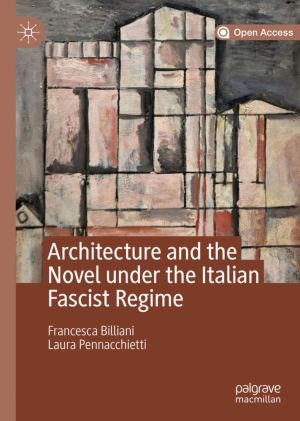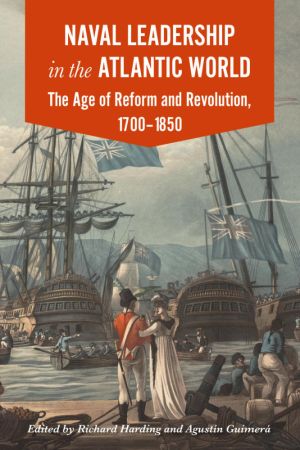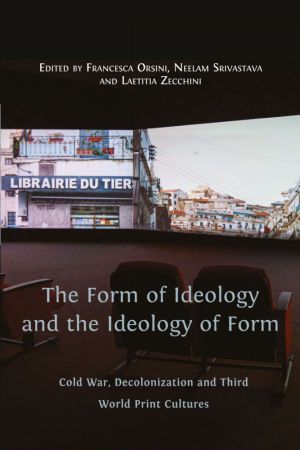The Form of Ideology and the Ideology of Form
Cold War, Decolonization and Third World Print Cultures
by Francesca Orsini, Neelam Srivastava, Laetitia Zecchini
DescriptionTable of ContentsDetailsHashtagsReport an issue
The essays in this collection focus on locations as diverse as Morocco, Tunisia, South Asia, China, Spain, and Italy, and on texts in Arabic, English, French, Hindi, Italian, Bengali, and Spanish. In doing so, they highlight the combination of local debates and struggles, and internationalist networks and aspirations that found expression in essays, novels, travelogues, translations, reviews, reportages and other literary forms.
With its comparative study of print cultures with a focus on decolonization and the Cold War, the volume makes a major contribution both to studies of postcolonial literary and print cultures, and to cultural Cold War studies in multilingual and non-Western contexts, and will be of interest to historians and literary scholars alike. 






Book Description
This timely volume focuses on the period of decolonization and the Cold War as the backdrop to the emergence of new and diverse literary aesthetics that accompanied anti-imperialist commitments and Afro-Asian solidarity. Competing internationalist frameworks produced a flurry of writings that made Asian, African and other world literatures visible to each other for the first time. The book's essays examine a host of print culture formats (magazines, newspapers, manifestos, conference proceedings, ephemera, etc.) and modes of cultural mediation and transnational exchange that enabled the construction of a variously inflected Third-World culture which played a determining role throughout the Cold War.The essays in this collection focus on locations as diverse as Morocco, Tunisia, South Asia, China, Spain, and Italy, and on texts in Arabic, English, French, Hindi, Italian, Bengali, and Spanish. In doing so, they highlight the combination of local debates and struggles, and internationalist networks and aspirations that found expression in essays, novels, travelogues, translations, reviews, reportages and other literary forms.
With its comparative study of print cultures with a focus on decolonization and the Cold War, the volume makes a major contribution both to studies of postcolonial literary and print cultures, and to cultural Cold War studies in multilingual and non-Western contexts, and will be of interest to historians and literary scholars alike.
This open book is licensed under a Creative Commons License (CC BY-NC-ND). You can download The Form of Ideology and the Ideology of Form ebook for free in PDF format (32.4 MB).
Table of Contents
Chapter 1
The Traveller as Internationalist: Syed Mujtaba Ali
Chapter 2
Writing Friendship: The Fraternal Travelogue and China-India Cultural Diplomacy in the 1950s
Chapter 3
Literary Activism: Hindi Magazines, the Short Story and the World
Chapter 4
Publishing the Resistance: Third-Worldist Writing in Cold War Italy
Chapter 5
The Meanings, Forms and Exercise of 'Freedom': The Indian PEN and the Indian Committee for Cultural Freedom (1930s-1960s)
Chapter 6
Moroccan Intellectuals Between Decolonisation and the Arab Cold War: Abdallah Laroui's Critical and Literary Writing
Chapter 7
The Poetics and Politics of Solidarity: Barg el-Lil (1961) and Afrotopia
Chapter 8
Euforia, Desencanto: Roberto Bolaño and Barcelona Publishing in the Transition to Democracy
Book Details
Title
The Form of Ideology and the Ideology of Form
Subject
History
Publisher
Open Book Publishers
Published
2022
Pages
342
Edition
1
Language
English
ISBN13
9781800641884
ISBN10
1800641885
ISBN13 Digital
9781800641907
ISBN10 Digital
1800641907
PDF Size
32.4 MB
License

Related Books

In this updated edition of a groundbreaking text, concepts such as energy return on investment (EROI) provide powerful insights into the real balance sheets that drive our "petroleum economy." Hall and Klitgaard explore the relation between energy and the wealth explosion of the 20th century, and the interaction of internal limits to grow...

Architecture and the Novel under the Italian Fascist Regime discusses the relationship between the novel and architecture during the Fascist period in Italy (1922-1943). By looking at two profoundly diverse aesthetic phenomena within the context of the creation of a Fascist State art, Billiani and Pennacchietti argue that an effort of construction,...

From 1928 to 1972, the Alberta Sexual Sterilization Act, Canada's lengthiest eugenic policy, shaped social discourses and medical practice in the province. Sterilization programs - particularly involuntary sterilization programs - were responding both nationally and internationally to social anxieties produced by the perceived connection betwe...

This book presents the deterministic view of quantum mechanics developed by Nobel Laureate Gerard 't Hooft.Dissatisfied with the uncomfortable gaps in the way conventional quantum mechanics meshes with the classical world, 't Hooft has revived the old hidden variable ideas, but now in a much more systematic way than usual. In this, quantu...

The naval leader has taken centre stage in traditional naval histories. However, while the historical narrative has been fairly consistent the development of various navies has been accompanied by assumptions, challenges and competing visions of the social characteristics of naval leaders and of their function. Whilst leadership has been a constant...

How does technology impact research practices in the humanities? How does digitisation shape scholarly identity? How do we negotiate trust in the digital realm? What is scholarship, what forms can it take, and how does it acquire authority?
This diverse set of essays demonstrate the importance of asking such questions, bringing together establis...

